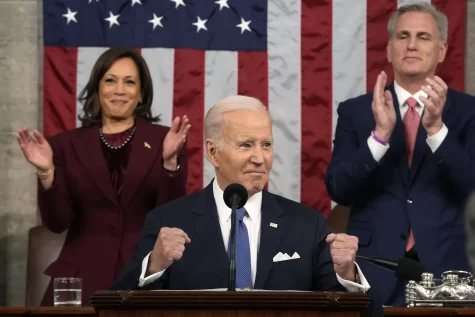Candlelight vigil to be held in honor of Corey Jackson
Students, faculty and visitors will come together Oct. 19 to remember Corey Jackson at a candlelight vigil to be held between Vandenberg Hall and Beer Lake.
The vigil will begin at 7 p.m. and will honor the student who was a 19-year-old sophomore when he committed suicide Oct. 19, 2010.
Jackson, who was from Warren, lived in the residence halls at the time of his death. He was a member of Tau Kappa Epsilon and had recently told his friends and family he was gay.
Officials and close friends said there was no evidence of bullying taking place before his death.
Although the programming for the vigil is still in the works, collaborators of the vigil wish to see a hopeful and educational component to the event, according to Preston Van Vliet, a senior studying psychology.
Van Vliet was the president of the Gay-Straight Alliance during the time of Jackson’s death and helped organize last year’s vigil along with the GSA, Center for Student Activities, Chi Sigma Iota, Graham Counseling Center, Students Against Bullying, School of Education and Human Services Counseling Center, the TKE fraternity and several of Jackson’s family and friends.
Van Vliet is currently not affiliated with any student organizations, but said when he realized none of the organizations were putting anything together, he organized this year’s event through the CSA, OUSC, the Graham Counseling Center, Students Against Bullying, Grizzlies Response: Awareness and Suicide Prevention, and a friend of Jackson and his family, Angela McCormick.
The vigil
Van Vliet said lighting candles, which will be provided at the event, will serve as a way to remember Jackson and symbolize the love from the community.
He said Dalton Connally, assistant professor of social work, will discuss the $612,000 grant GRASP received and how the community is striving to prevent similar tragedies.
Dr. David Schwartz, director of the Graham Counseling Center located in the Graham Health Center, will also be at the event to discuss resources for those students seeking help, Van Vliet said.
Preventing future tragedies
Since Jackson’s death, the GCC has worked to improve and increase campuswide suicide prevention and intervention efforts, according to Schwartz.
Schwartz said while the GCC has always taken an active role in suicide prevention and intervention, they have increased activities such as staff and resident assistant training, workshops, mental health screenings and increasing availability of crisis line information since Jackson’s death.
“In the last year alone, we (the GCC), have increased our outreach activities by close to 300 percent,” Schwartz said.
At all of the GCC’s events, “crisis” cards with information about four confidential 24-hour crisis lines are handed out to students, according to Schwartz.
“We work hard to educate students on what resources are available to them both on campus and off campus,” Schwartz said.
In addition to these efforts, Schwartz said GRASP plans to train 20 percent of OU staff and employees in suicide prevention.
For students seeking counseling sessions, the GCC employs licensed psychologists and pre-doctoral interns, and also reserves time every day for emergency or crisis appointments, according to Schwartz.
Remembering Corey
Van Vliet said the importance of this event is for the campus community to remember what happened, because the consequences of not doing so are too severe.
He said events like this also serve as a way to de-stigmatize mental illness and build empathy within a community.
“It would not only be belittling to Corey’s life and family if we ‘forgot’ that this happened, but to our own lives as well,” Van Vliet said. “The community was hurt. But the community has also been healing. We deserve to recognize the strength and the resiliency of all people who had been impacted by this. Corey deserves to be recognized as a beautiful person, and that he was loved by a beautiful community.”
For more information about the services the GCC offers, online mental health screenings and crisis resources, visit www.oakland.edu/gcc.











